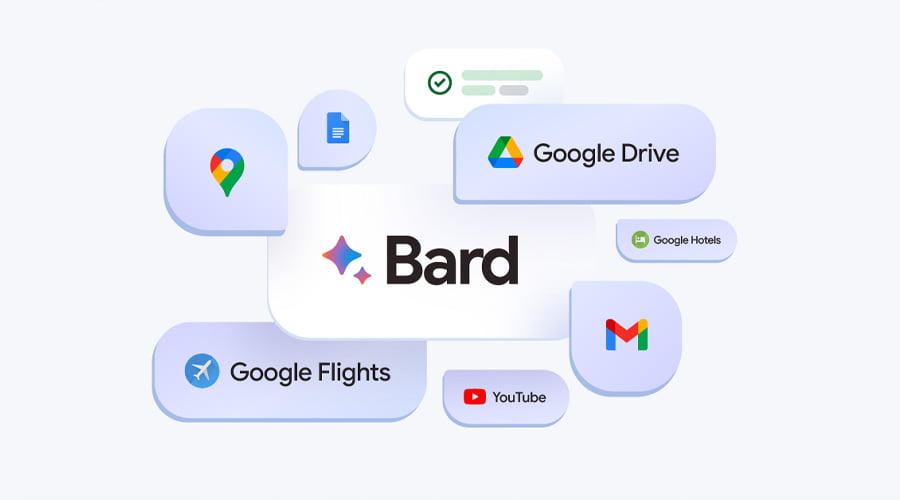Imagine a customer service experience where we can chat with chatbots that can engage in natural, empathetic conversations with customers, resolving their inquiries with personalized responses. Virtual assistants proactively anticipate customer needs and offer tailored solutions before issues even arise.
In today’s competitive business landscape, customer service has become a critical differentiator, directly impacting customer loyalty, brand reputation, and ultimately, business success. Generative AI, a revolutionary technology poised to transform the way businesses interact with their customers, is ushering in an era of personalized and proactive customer service.
Generative AI, a subset of artificial intelligence, has the remarkable ability to generate human-quality text, images, and other creative outputs by learning from vast amounts of data. This unique capability holds immense potential for customer service, enabling businesses to create personalized interactions, automate repetitive tasks, and provide 24/7 support in multiple languages.
By understanding the context of customer inquiries, generative AI models can generate natural, human-like responses that address the specific needs and concerns of each customer. This personalized approach fosters stronger customer relationships, enhances customer satisfaction, and encourages brand loyalty.
Understanding Generative AI for Customer Service
Generative AI, a subset of artificial intelligence (AI), is revolutionizing the way businesses interact with their customers. By learning from vast amounts of data, generative AI models can generate human-quality text, images, and other creative outputs, making them particularly well-suited for customer service applications.
Key Capabilities of Generative AI for Customer Service
- Personalized Interactions: Generative AI models can understand the context of customer inquiries and generate natural, human-like responses that address the specific needs and concerns of each customer.
- Automated Repetitive Tasks: Generative AI can automate a significant portion of repetitive customer service tasks, such as answering FAQs, providing basic troubleshooting steps, and handling routine inquiries.
- 24/7 Multilingual Support: Generative AI can provide 24/7 customer support in multiple languages, ensuring that customers receive assistance whenever and wherever they need it.
- Creative Content Generation: Generative AI can be used to generate creative content for knowledge base articles and FAQs, ensuring that customers have access to up-to-date and accurate information.
- Proactive Issue Identification: Generative AI can analyze customer sentiment and feedback to identify potential problems and proactively reach out to customers to offer solutions or provide preventive measures.
Types of Generative AI Models for Customer Service
- Large Language Models (LLMs): LLMs are a type of generative AI model that excels at generating human-quality text. They are particularly well-suited for customer service applications that require natural language understanding and response generation.
- Generative Adversarial Networks (GANs): GANs are a type of generative AI model that can generate realistic images and other creative outputs. They can be used to create personalized customer experiences, such as generating avatars or product recommendations based on customer preferences.
Benefits of Generative AI for Customer Service
The integration of generative AI into customer service operations offers a multitude of benefits that enhance customer satisfaction, improve business efficiency, and drive business growth. Let’s explore some of the key advantages:
- Enhanced Customer Interactions: Generative AI enables personalized and empathetic interactions with customers, fostering stronger relationships and improving overall customer satisfaction. By understanding the context and sentiment of customer inquiries, generative AI models can craft natural and human-like responses that address specific needs and concerns.
- Automated Repetitive Tasks: Generative AI takes over repetitive and time-consuming tasks, freeing up human agents to focus on complex issues that require empathy and judgment. By automating tasks such as answering FAQs, providing basic troubleshooting steps, and handling routine inquiries, generative AI significantly improves agent productivity and reduces operational costs.
- 24/7 Multilingual Support: Generative AI breaks down language barriers and provides round-the-clock customer support in multiple languages, ensuring that customers receive assistance whenever and wherever they need it. This global reach expands business opportunities and caters to a diverse customer base.
- Creative Content Generation: Generative AI can generate creative and informative content for knowledge base articles, FAQs, and product descriptions, ensuring that customers have access to accurate and up-to-date information. This self-service support empowers customers to resolve issues quickly and easily.
- Proactive Issue Identification: Generative AI analyzes customer sentiment and feedback to identify potential problems before they arise. By proactively reaching out to customers with solutions or preventive measures, businesses can avoid customer churn, resolve issues before they escalate, and enhance overall customer satisfaction.
- Data-Driven Insights and Predictive Analytics: Generative AI models can analyze customer interactions, sentiment data, and other relevant information to gain valuable insights into customer behavior and preferences. These insights can be used for predictive analytics, enabling businesses to anticipate customer needs, proactively offer personalized recommendations, and optimize marketing campaigns.
- Improved Agent Training and Performance: Generative AI can be used to generate training materials, provide real-time feedback, and suggest personalized coaching recommendations for customer service agents. This continuous learning and development approach enhances agent skills, improves performance, and ensures consistent delivery of high-quality customer service.
In summary, generative AI revolutionizes customer service by enabling personalized interactions, automating repetitive tasks, providing 24/7 multilingual support, generating creative content, proactively identifying issues, and providing data-driven insights. These benefits translate into improved customer satisfaction, increased agent productivity, reduced operational costs, and enhanced business reputation.
Real-World Applications of Generative AI in Customer Service
As generative AI continues to evolve and mature, its applications in customer service are expanding, transforming the way businesses interact with their customers. Here are some real-world examples of how generative AI is being used to revolutionize customer service:
- Chatbots powered by generative AI are becoming increasingly common, providing first-line customer support by answering FAQs, troubleshooting common issues, and directing customers to the appropriate resources. These chatbots can handle a significant volume of inquiries, freeing up human agents to focus on more complex problems and provide a more personalized touch.
- Virtual assistants powered by generative AI are emerging as valuable tools for customer service, offering personalized recommendations, providing real-time support, and automating tasks such as scheduling appointments and managing account information. These virtual assistants can enhance customer experience by providing a seamless and convenient way to interact with businesses.
- Automated content creation for knowledge base articles and FAQs is being facilitated by generative AI, ensuring that customers have access to up-to-date and accurate information. Generative AI models can analyze existing content, identify gaps, and generate new content that addresses customer needs and resolves common issues.
- Sentiment analysis tools powered by generative AI are providing businesses with valuable insights into customer sentiment, enabling them to identify potential problems, improve customer satisfaction, and optimize their products and services. Generative AI models can analyze customer feedback, social media mentions, and online reviews to gauge customer sentiment and identify areas for improvement.
- Predictive analytics tools powered by generative AI are helping businesses anticipate customer needs and proactively offer personalized recommendations. These tools can analyze customer behavior, purchase history, and other relevant data to predict future needs and suggest relevant products, services, or support options.
- Generative AI-powered customer service platforms are emerging that integrate all of these capabilities into a single platform, providing businesses with a comprehensive solution for managing customer interactions. These platforms can automate tasks, provide personalized support, and analyze customer data to improve customer experience and business outcomes.
The real-world applications of generative AI in customer service are constantly evolving, with new and innovative use cases emerging regularly. As businesses continue to adopt this technology, they can expect to see significant improvements in customer satisfaction, operational efficiency, and business growth.
As generative AI revolutionizes customer service, careful consideration of challenges and ethical implications is crucial to ensure responsible and effective utilization.
Data privacy, transparency, and consistency in output quality must be prioritized. Human oversight should complement generative AI, not replace it. Businesses should plan for seamless integration, employee training, and bias mitigation. Regulatory compliance is essential. By responsibly addressing these challenges, businesses can harness generative AI’s power for enhanced customer satisfaction and business growth.
Embracing the Future of Generative AI in Customer Service
The future of customer service is undoubtedly shaped by the transformative power of generative AI. As this technology continues to evolve and mature, its impact on customer interactions is expected to grow exponentially, redefining the way businesses engage with their customers.
Generative AI will foster personalized and proactive customer interactions, enabling businesses to tailor their approach to each individual customer’s needs and preferences. By understanding the context of customer inquiries and sentiment, generative AI models can generate natural, human-like responses that address specific concerns and foster stronger customer relationships.
Moreover, generative AI will revolutionize the way businesses handle customer support. By automating repetitive tasks and providing 24/7 multilingual support, generative AI will free up human agents to focus on complex issues that require empathy and judgment, while ensuring that customers receive assistance whenever and wherever they need it.
As generative AI continues to permeate the customer service landscape, businesses must be prepared to embrace the opportunities and challenges it presents. By prioritizing data privacy and security, maintaining quality and consistency in AI output, and establishing clear guidelines for human oversight, businesses can effectively harness the power of generative AI to enhance customer satisfaction, improve operational efficiency, and drive sustainable business growth.







